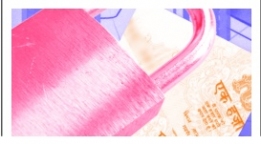Fixing It - DoT imposes three-year lock-in on equity sale

-
Over the past few months, India's apidly growing telecom sector has witnessed a number of high-profile deals. UAE-based Etisalat picked up stake in start-up operator Swan Telecom; Norwegian telecom major Telenor bought stake in another new operator, Unitech Wireless (the telecom arm of leading realty firm Unitech); and leading Japanese operator NTT DoCoMo entered the Indian market by acquiring 26 per cent stake in Tata Teleservices Limited (TTSL), the sixth largest mobile operator in the country.
All this naturally bodes well for the Indian telecom sector, which has been able to attract quality investments despite the global financial crisis. But not so for the Ministry of Communications and IT – and Minister A. Raja – which has been taking a lot of flak over the new operators making windfall gains at a huge cost to the exchequer. According to critics and industry watchers, at Rs 16.51 billion for a panIndian licence, the government sold the licences cheap early this year. This might have been avoided had 2G spectrum been auctioned or the base price kept higher. "Just going by the valuations of Swan and Unitech, the government could have made over Rs 500 billion if the licences (which come bundled with 2G radio frequencies) were auctioned," says an industry analyst.
Under considerable pressure, the Department of Telecommunications (DoT) has now imposed a three-year lock-in period on the sale of promoters' equity in start-up operators. It has also barred operators from issuing special dividends in the first three years of operations. This, according to analysts, is expected to dissuade new telecom firms from cashing out before undertaking large-scale network rollouts.
However, while imposing the new rules, DoT has ensured that the Swan and Unitech deals don't come undone. It has clarified that the lock-in period will be applicable only on the sale of promoter equity. It will not be applicable on the purchase of fresh equity or on the transfer of shares by lending banks or financial institutions as enforcement of the pledge in case of default by the borrowers. The Unitech and Swan deals are thus safe as the investments have been made by strategic investors subscribing to fresh equity.
Meanwhile, the Ministry of Law is yet to give its clearance and decide if new 2G licensees with no network infrastructure, subscribers or operational telecom business are eligible to issue fresh equity. Either way, the new players will still stand to gain. "The promoters of the new companies will benefit because they are selling fresh shares at a premium. This, in turn, increases the value of the equity they hold," notes a telecom analyst from Edelweiss.
Meanwhile, TTSL is not sure whether it will be affected by the imposition of a lock-in period. In a letter to DoT, the company has asked for clarifications on its new rules that prevent recent entrants (which TTSL is not) from selling their stakes after getting the licence and spectrum. Moreover, TTSL has claimed that since it was subject to a lock-in period when it started operations, it should not have any further restriction on stake sale. TTSL has asked for a similar exemption as other existing telecom operators like Reliance Communications, Idea Cellular and Aircel.
TTSL's letter is of significance as the company was awarded crossover spectrum (to provide GSM services in addition to the existing CDMA services) in February 2008, and mid-November, the company sold 26 per cent stake to NTT DoCoMo for around $2.7 billion.
DoT officials are, however, of the opinion that the lock-in period will be applicable only to operators that have received licences this year (that is, the new entrants) and not the incumbent operators.
The Telecom Commission, meanwhile, has cleared a 3 per cent (of aggregate revenue) spectrum usage charge on new telecom companies that offer 3G mobile services. For existing operators entering the 3G space, an additional 1 per cent (of aggregate revenue) charge will be applicable. At present, companies like Bharti Airtel, Vodafone Essar and Idea Cellular pay 2-6 per cent as user charges for 2G services, depending on the amount of spectrum they hold.
According to a DoT official, the Telecom Commission has also endorsed a 1-2 per cent hike in the usage charge for 2G spectrum. The hike will be 1 per cent for operators that hold up to 8 MHz of spectrum, and 2 per cent for those having more than 8 MHz. The new charges will be effective from January 2009.
The hike in 2G spectrum charges is expected to pull in a total of Rs 10 billion as additional levies. And with the revenues of telecom operators rising, the amount can only go up.
The Telecom Commission, however, has not taken any decision on DoT's proposal to impose a one-time fee on GSM operators that have 2G radio frequencies beyond 6.2 MHz. Such a fee will impact existing operators like Bharti Airtel, Vodafone and Idea, and might start another round of controversy.
Moreover, Raja and DoT Secretary S. Behura already have differences over the controversial issue of rollout obligations for new operators. According to Behura, "Rollout conditions are an irritant and have been removed globally. In India, so far no company has ever violated the obligations." But Raja is stricter. He wants telecom companies to face licence termination and subsequent surrender of spectrum if they fail to start services within the stipulated three-year period.
- Most Viewed
- Most Rated
- Most Shared
- Related Articles
- Manufacturing Hub: India emerges as a ke...
- TRAI performance indicator report for Se...
- Prashant Singhal, partner, telecom indus...
- 2G spectrum scam: continuing controversy
- An Eventful Year: Telecom highlights of ...
- Telecom Round Table: TRAI’s spectrum p...
- Manufacturing Hub: TRAI recommends indig...
- Linking Up: ITIL to merge with Ascend
- High Speed VAS - Killer applications w...
- Bharti Airtel seals deal with Zain - Zai...






